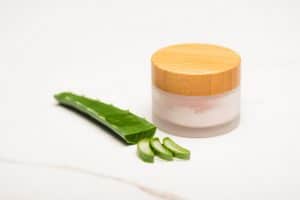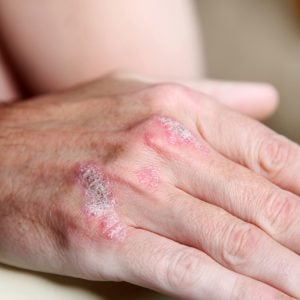
Aloe vera can be used for conditions ranging from sun burn to wounds. Just be sure you are using it safely.
While we haven’t found a sure-fire fountain of youth quite yet, adults are choosing to make supplements and vitamins a part of their regular beauty and health care routines. Many times, natural options heed excellent results, which is why people are turning to aloe vera for skin care and health care. What do you need to know about aloe vera, its implications, and its treatments? We are breaking it down for you here.
As with any new supplement, medication, or vitamin regimen, be sure you don’t start anything without first speaking with your physician.
What Is Aloe Vera?
Aloe vera is a succulent plant that grows in subtropical areas of the globe including New Mexico, California, and Texas. However, you can also take a stroll down the aisles of your favorite plant store or grocery store to find potted aloe ready for you to purchase and take home. The plant has been used for medicinal purposes for many years, though we are still trying to properly use and regulate it safely here in America.
Aloe Vera and Skin Care

Aloe vera gel has been used successfully to treat the pain and itching of psoriasis.
When you think about aloe vera and skin care, you might first think of the containers of bright green gel that is sold to treat sunburn. You can purchase this treatment in almost any CVS drug store or grocery store, though the bright green gel is not always indicative of the plant’s coloring. It’s true that there is a substance when you crack open an aloe vera plant, but the substance is actually more clear than bright green. And there are plenty of other skin care uses beyond sunburn treatment.
The Mayo Clinic reports that using aloe vera gel can be helpful for easing first and second degree burns, including your sunburn from staying outside without sunblock for too long. There is also some research that aloe vera gel can also promote healing for cuts, scrapes, and wounds. However, you don’t have to use the bright green gel you get at the store. You can find other better quality options or use your own aloe plant’s gel right at home.
Aloe gel is also sometimes used for other skin care solutions or treatments. For example, aloe extract cream has a history of being used to treat psoriasis and has been found to reduce redness and scaling for mild to moderate psoriasis. The plant’s anti-inflammatory properties also led to decreased inflammation for patients living with psoriasis, offering relief of pain and itching.
Aloe contains anti-inflammatory properties as well as collagen-stimulating properties, which is why is it a good choice for topical skin care use. You might even see aloe as an ingredient in your favorite skin care or anti-aging product for those reasons too.
The National Center for Complementary and Integrative Health also reports that aloe vera applied topically can be used successfully to treat acne in some cases as well as lichen planus, an itchy rash. Cancer survivors found some relief from radiation-induced skin toxicity as well from topical aloe vera use.
It’s important to note that both the Mayo Clinic and the National Center for Complementary and Integrative Health report that topical use of aloe vera is typically tolerated well. Oral use, however, can cause complications.
Aloe Vera and Health Care
Aloe vera gel, when used topically, can be effective in reducing pain and promoting healing. However, there are some solutions on the market that allow people to ingest aloe vera. These aloe vera juices are available to purchase but are not always safe.
Mount Sinai Health Systems notes that ingesting aloe juice or aloe latex for its laxative properties is not effective for curing constipation. In fact, it can cause cramping and can be unsafe. The FDA required that aloe be removed from over-the-counter and prescribed laxatives in 2002 as there were simply not enough studies on the safety or efficacy of the ingredient. However, aloe juice is being studied to see its effectiveness for lowering blood sugar in patients living with diabetes, decreasing the effects of alcohol-induced liver damage, and even fighting cavities.
It is also important to note the ingesting aloe can cause potential issues with current medications. For example, aloe might have adverse reactions when paired with diuretics or digoxin, common medications for those living with certain heart conditions and can lead to increased risk for falling or hospitalization.
Finally, the University of Rochester Medical Center cautions pregnant or breastfeeding women against ingesting aloe vera. They go on to recommend topical use for anyone but to discontinue the use of the gel if a rash develops.
As with anything, double-check with your physician before using any type of supplement, juice, or vitamin. Your doctor should also be your primary source when it comes to fielding questions about alternative aloe care health treatments.


